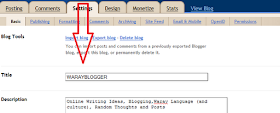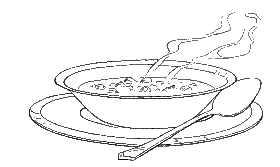pagkaon (food)
bata (child) - mga bata (children)
kahoy (tree) - mga kahoy (trees)
harok (kiss) - mga harok (kisses)
sangkay (friend) - mga sangkay (friends)
bugto (sibling) - mga bugto (siblings)
lalaki (man) - mga lalaki (men)
babaye (woman) - mga babaye (women)
daraga (unmarried/young lady) - mga daraga (unmarried/young ladies)
ulitawo (unmarried/young man) - mga ulitawo (unmarried/young men)
urupod (relative) - mga urupod (relatives)
patud (cousin) - mga patud (cousins)
mananap (insect) - mga mananap (insects)
mga pagkaon
The second way of doing it is by adding a prefix and a suffix to the root word. Normally, the prefix KA and the suffix AN are added to the word; hence, bata becomes kabataan and kahoy becomes kakahoyan. Harok (kiss), however, cannot be expressed in plural form using this style. You either say harok or mga harok, but NOT kaharokan.
bata (child) - kabataan (children)
kahoy (tree) - kakahoyan (trees)
bugto (sibling) - kabugtoan (siblings)
sangkay (friend) - kasangkayan (friends)
kadaragan-an ug kaulitawhan (young ladies and young men)
There is a slight variation with how the words lalaki, babaye, and daraga are expressed in plural form in Waray. Instead of the suffix AN, the letter N is added to the root word before adding AN: kalalakin-an, kababayen-an, kadaragan-an.
lalaki (man) -kalalakin-an (men)
babaye (woman) - kababayen-an (women)
daraga (unmarried/young lady) - kadaragan-an (unmarried/young women)
ulitawo (unmarried/young man) - kaulitawhan (unmarried/young men)
patud (cousin) - kapaturan (cousins)
urupod (relative) - kaurupdan (relatives)
mananap (insect) - kamamanampan (insects)
With ulitawo, the letter "O" is replaced with letter "H" before adding the suffix AN: kaulitawhan. Moreover, "D" in patud is dropped and is replaced with the letter "R" before the suffix AN is added. "O" is likewise dropped in urupod when expressed in plural form. The way mananap, changes to its plural form is even more complicated. "M" is inserted between the two final letters (A and P); hence, mananap becomes kamamanampan.
One piece of advice: if you think the second style is complicated, you just stick to the simpler one: add "mga" to any Waray noun (place it before the word) and you will have it in plural form.





















